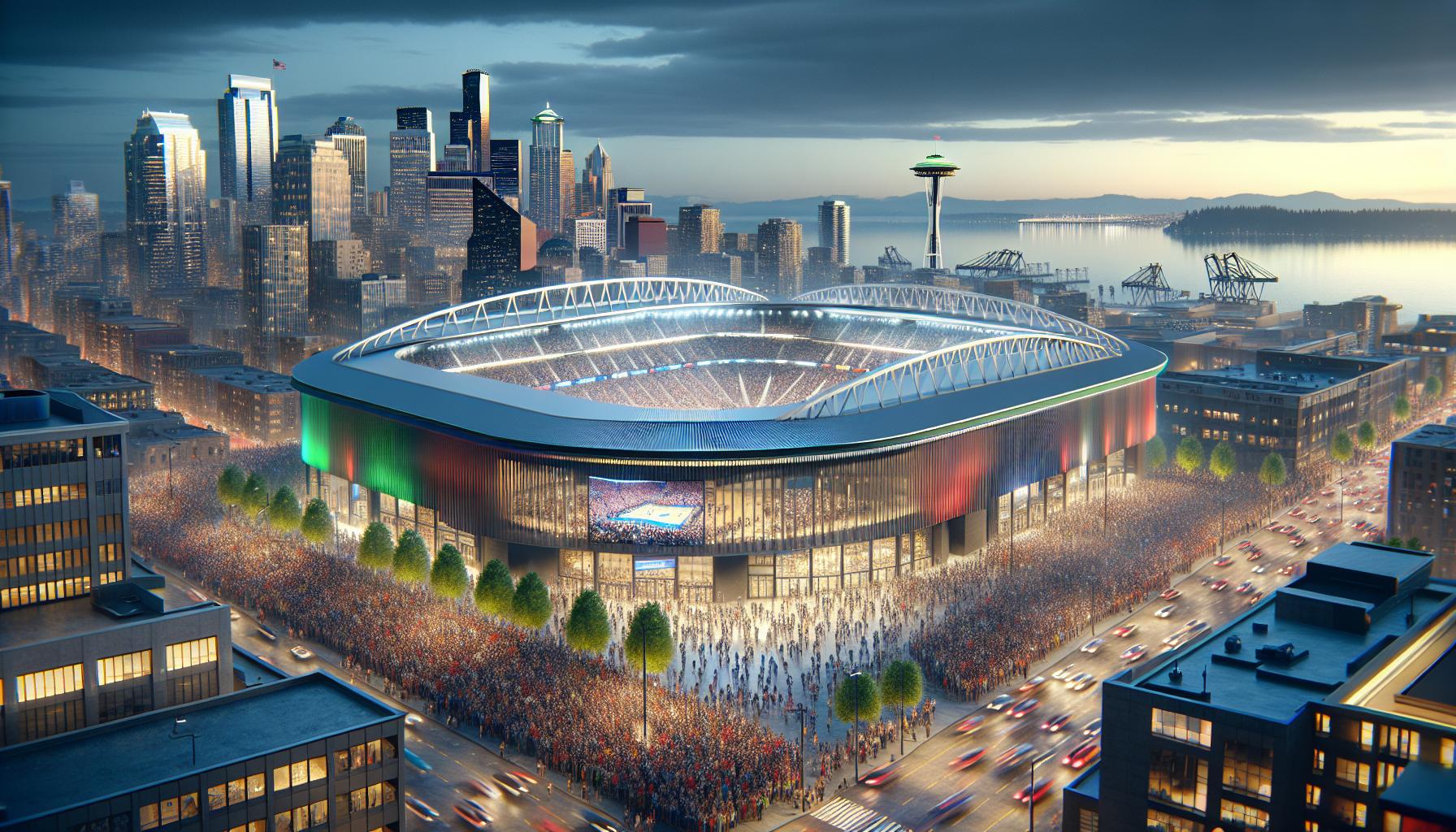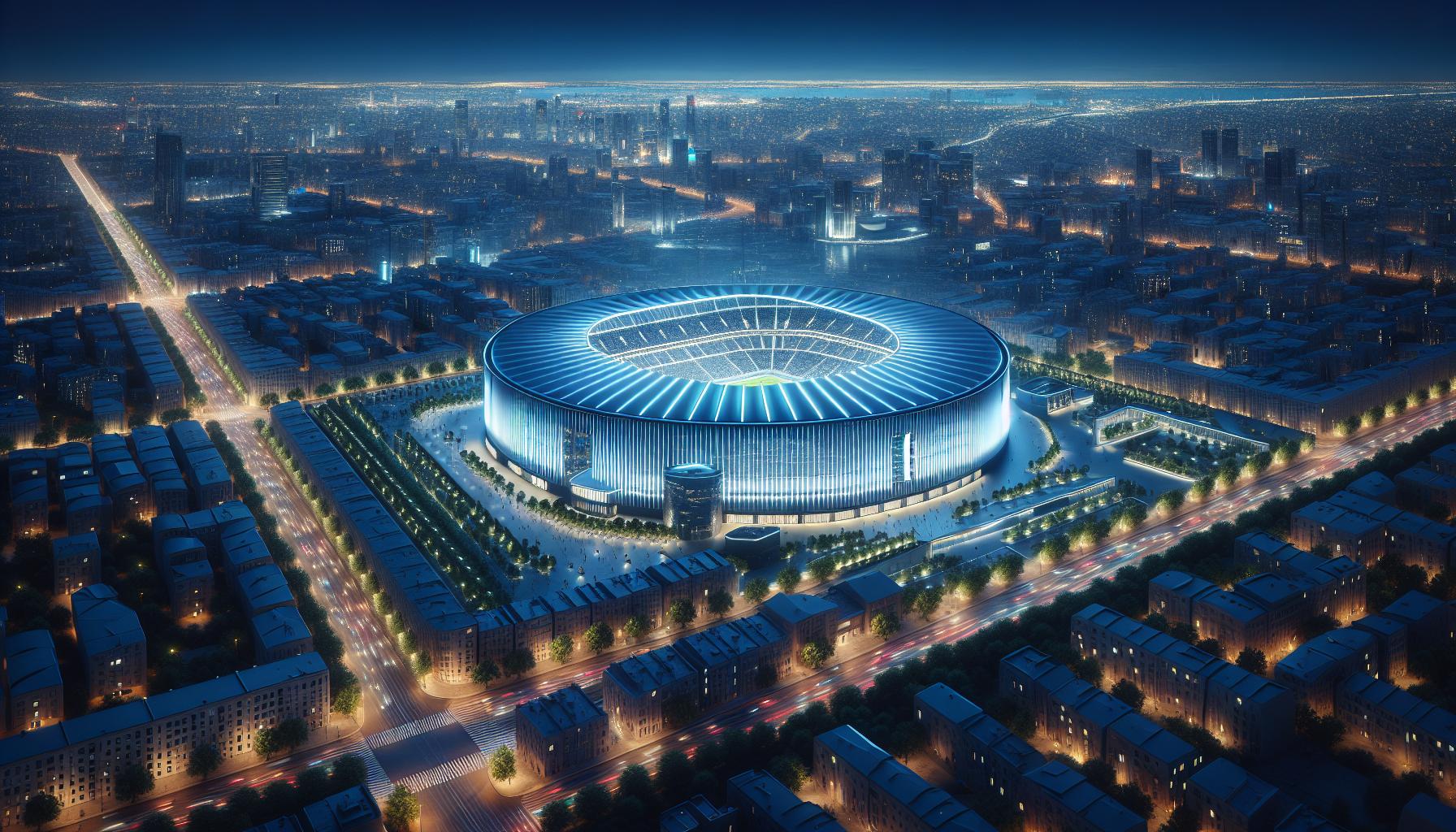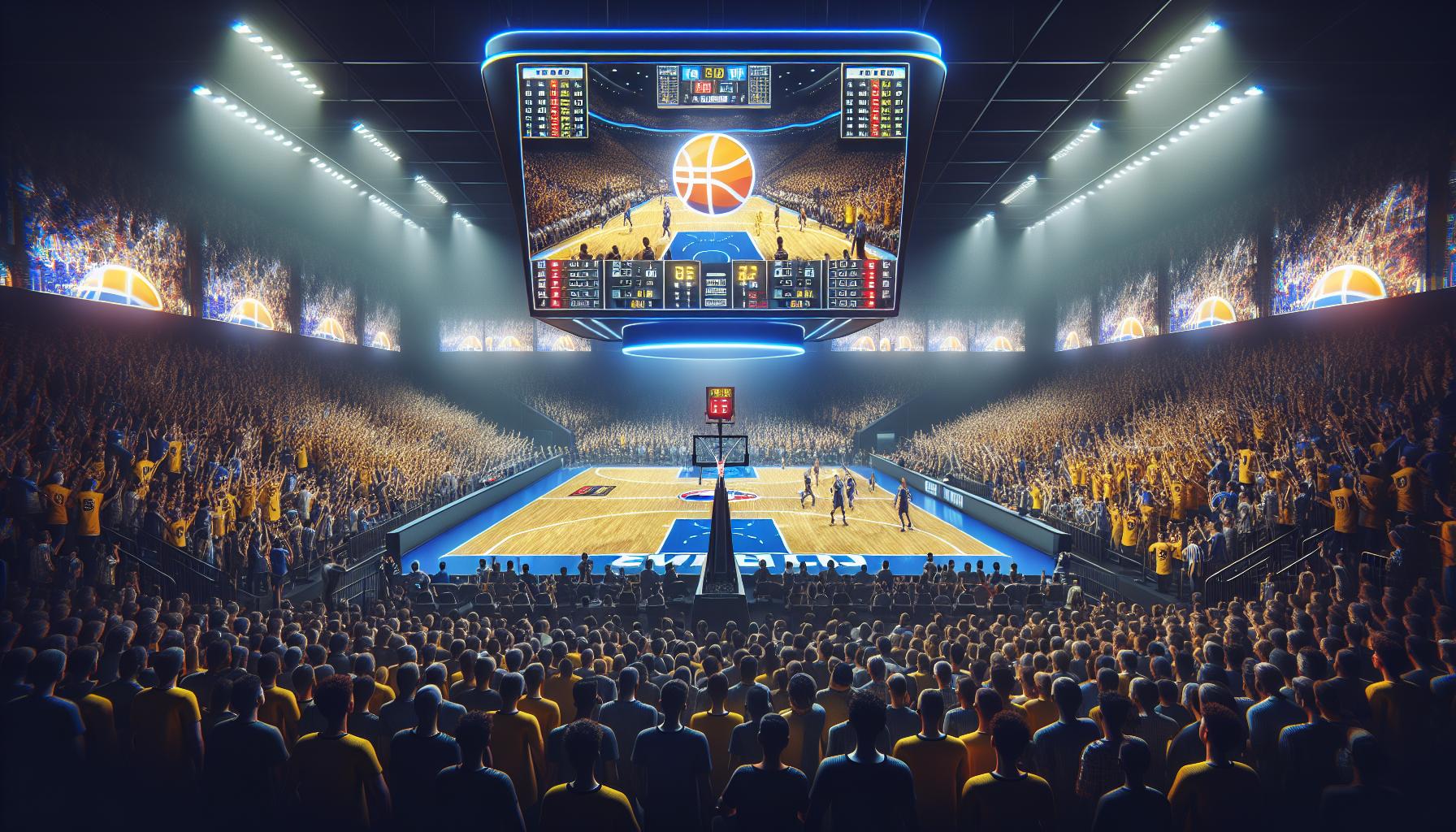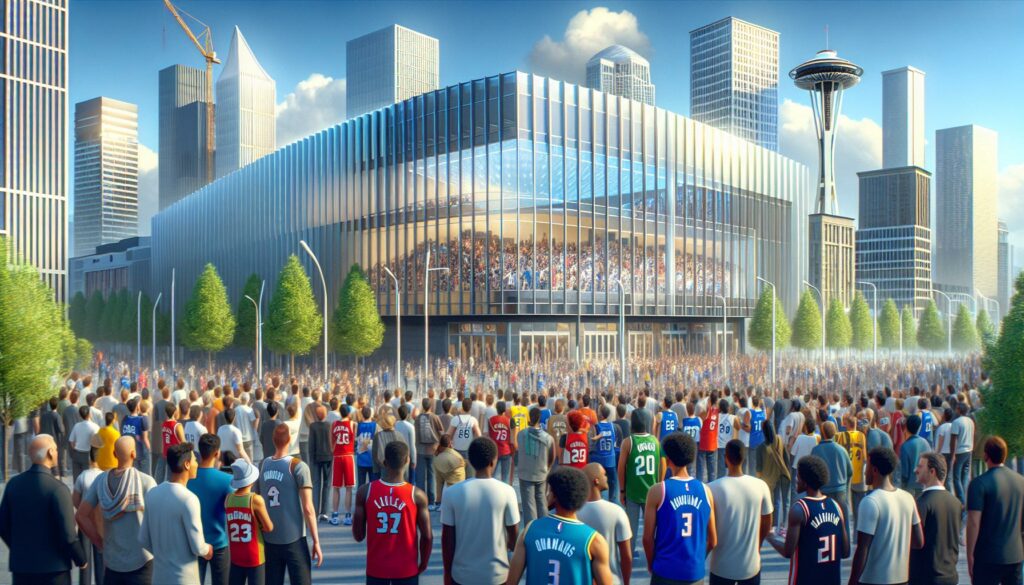The NBA’s potential expansion has become one of the hottest topics in professional basketball. As someone who’s followed the league closely for years, I’ve watched the growing momentum behind adding new teams to the 30-franchise lineup. The buzz around possible expansion cities like Las Vegas and Seattle has reached fever pitch.
I’ve noticed that NBA Commissioner Adam Silver has been increasingly open about expansion discussions, suggesting it’s no longer a matter of if, but when. The league’s explosive growth and financial success have created the perfect conditions for welcoming new markets. Recent reports indicate the NBA could announce expansion plans as early as 2024, with franchise fees potentially reaching $5 billion per team. This development would mark the first NBA expansion since 2004 when the Charlotte Bobcats (now Hornets) joined the league.
Key Takeaways
- The NBA Expansion News is actively considering expansion for the first time since 2004, with plans potentially being announced as early as 2024
- Seattle and Las Vegas emerge as the leading candidates for expansion, with both cities featuring NBA-ready arenas and strong market potential
- Expansion fees could reach $5 billion per team, generating significant revenue for existing franchises through equal distribution
- New teams would impact the NBA’s revenue sharing model, requiring adjustments to national TV contracts and local broadcast rights
- Commissioner Adam Silver’s approach focuses on strategic growth, requiring league stability and a $10 billion revenue threshold before expansion
- The expansion process requires approval from 23 of 30 current team owners, who consider factors like franchise values and revenue implications
NBA Expansion News
The NBA’s expansion strategy involves a methodical approach to adding new teams with a focus on optimal market selection and financial sustainability. League executives established specific criteria for evaluating potential expansion cities through a data-driven process.
Potential Target Cities
Seattle and Las Vegas lead the expansion candidates due to their established infrastructure and market potential. Seattle’s Climate Pledge Arena opened in 2021 with NBA-ready specifications including 18,100 seats and state-of-the-art facilities. Las Vegas offers the T-Mobile Arena which hosts 20,000 spectators and maintains NBA-caliber amenities. Additional cities under consideration include:
- Mexico City features an NBA G League team and the 22,300-seat Arena CDMX
- Vancouver provides a 19,700-capacity Rogers Arena with previous NBA experience
- Louisville presents the 22,090-seat KFC Yum! Center built to NBA standards
- Montreal boasts the 21,302-seat Bell Centre with modern amenities
League Revenue Considerations
The NBA’s expansion analysis centers on financial metrics and revenue projections for each market. Here’s the current revenue impact data:
| Revenue Factor | Projected Impact |
|---|---|
| Expansion Fee | $5 billion per team |
| Media Rights | $2.7 billion annual increase |
| Merchandise Sales | $300 million annual growth |
| Local Revenue | $450 million per market |
- Media rights negotiations scheduled for 2025 influence timing decisions
- Current team revenue sharing requires adjustment for expansion markets
- Local market sponsorship potential affects location selection
- International broadcast rights factor into global market choices
Seattle’s Path Back to the NBA

Seattle’s return to the NBA centers on the city’s deep basketball heritage following the Supersonics’ departure in 2008. The path to NBA reentry builds on two key strengths: modern arena infrastructure and strong corporate backing.
The Climate Pledge Arena Advantage
The Climate Pledge Arena represents Seattle’s premier venue for NBA basketball, featuring $1.15 billion in renovations completed in 2021. The 18,100-seat facility meets all NBA specifications with modern amenities including 40 luxury suites, 59 loge boxes and enhanced sightlines. Advanced sustainability features like rainwater recapture systems and solar panels align with the NBA’s environmental initiatives, while digital infrastructure supports modern broadcasting requirements.
Support from Local Business Leaders
Seattle’s corporate landscape provides robust financial backing for an NBA franchise through established companies:
- Amazon secured naming rights to Climate Pledge Arena in a $300 million+ deal
- Microsoft’s CEO Satya Nadella joined the ownership group pursuing an NBA team
- Starbucks committed to significant sponsorship opportunities valued at $50 million
- Boeing pledged corporate suite purchases and marketing partnerships
- Russell Wilson and Ciara invested $10 million in arena development efforts
- 8 Fortune 500 company headquarters
- $119 billion in annual corporate revenue within city limits
- 75,000+ high-income tech workers in the metropolitan area
- 5 committed anchor sponsors ready for team launch
Las Vegas as a Prime Expansion Location

Las Vegas stands as a frontrunner for NBA expansion with its established entertainment infrastructure and growing sports presence. The city’s transformation from a gambling destination to a major sports hub strengthens its position as an ideal market for professional basketball.
Arena Infrastructure
T-Mobile Arena emerges as a turnkey facility for NBA operations with its 20,000-seat capacity and modern amenities. The venue features 44 luxury suites, 550 club seats and a state-of-the-art LED system that meets NBA broadcasting standards. Built in 2016 at a cost of $375 million, the arena currently hosts the NHL’s Vegas Golden Knights and maintains an active event calendar that demonstrates its operational capabilities.
Market Size and Tourism Impact
Las Vegas’s metropolitan area population of 2.8 million provides a solid local fanbase, complemented by its 42 million annual visitors. The tourism ecosystem creates unique revenue opportunities:
| Revenue Source | Annual Potential |
|---|---|
| Tourism-Driven Ticket Sales | $50+ million |
| Casino Partnerships | $30+ million |
| Local TV Rights | $25+ million |
| Corporate Sponsorships | $40+ million |
The city’s 150,000 hotel rooms support event attendance while generating additional revenue through integrated sports betting platforms. Major corporations including MGM Resorts, Caesars Entertainment and Las Vegas Sands offer immediate sponsorship potential, creating a robust financial foundation for an NBA franchise.
Financial Impact of NBA Expansion

NBA expansion represents a significant financial transformation for the league’s revenue structure through franchise fees sales proceeds. The financial implications extend beyond initial fees to long-term revenue considerations.
Expansion Fees and Team Valuations
NBA expansion fees for new franchises range from $3.5 billion to $5 billion per team based on current market valuations. Recent team sales provide context for these valuations:
| Team | Sale Price | Year |
|---|---|---|
| Phoenix Suns | $4 billion | 2023 |
| Charlotte Hornets | $3 billion | 2023 |
| Minnesota Timberwolves | $1.5 billion | 2021 |
The expansion fees generate immediate capital distribution opportunities for existing NBA franchises, with each team receiving an equal share of the expansion proceeds. Current NBA franchises average $2.86 billion in value, setting a baseline for expansion team pricing.
Revenue Sharing Model
The NBA’s revenue sharing system adapts to accommodate expansion teams through specific financial mechanisms:
- Gate Revenue Split: Home teams retain 60% of ticket sales while visiting teams receive 40%
- Local Media Rights: New expansion teams receive proportional shares of regional broadcast revenues
- Merchandise Sales: Teams split league-wide merchandise revenue based on market size percentages
- Luxury Tax Distribution: Expansion teams participate in luxury tax redistribution after a 3-year entry period
The addition of expansion teams modifies the NBA’s existing revenue sharing formula by:
- Adjusting national TV contract distributions across 32 teams instead of 30
- Creating new revenue territories for local broadcast rights
- Establishing market-specific sponsorship zones for new franchise locations
- Implementing graduated revenue sharing participation rates for expansion teams
These financial structures ensure sustainable integration of new franchises while maintaining economic balance across the league.
Key Decision Makers and Stakeholders
NBA expansion decisions involve a complex network of influential figures at multiple organizational levels. The process requires alignment between league leadership executives team owners.
Adam Silver’s Vision
NBA Commissioner Adam Silver demonstrates strategic leadership in expansion planning through specific operational initiatives. He prioritizes league stability maintaining a $10 billion revenue threshold before serious expansion discussions. Silver emphasizes methodical market analysis focusing on:
- Broadcasting potential in new territories
- Arena infrastructure requirements
- Local corporate partnership opportunities
- Fan base demographics metrics
- Revenue generation projections
Team Owners’ Perspectives
Current NBA team owners hold significant influence over expansion decisions through voting power requiring 23 of 30 owners for approval. Their key considerations include:
- Franchise value protection metrics
- Revenue sharing implications
- Market competition factors
- Expansion fee distributions
- Schedule impact analysis
Key ownership groups demonstrating active engagement in expansion discussions:
| Ownership Group | Team | Notable Position |
|---|---|---|
| Steve Ballmer | LA Clippers | Supports strategic growth with technology focus |
| Joe Tsai | Brooklyn Nets | Advocates for Asian market expansion |
| Mark Cuban | Dallas Mavericks | Emphasizes revenue model sustainability |
| Joe Lacob | Golden State Warriors | Champions data-driven market selection |
- Annual revenue projections
- Media rights valuations
- Market size demographics
- Corporate sponsorship potential
- Regional competitive dynamics
NBA News
The NBA Expansion News plans represent an exciting new chapter in professional basketball. I firmly believe the addition of teams in markets like Seattle and Las Vegas will usher in unprecedented growth opportunities for the league.
With franchise fees potentially reaching $5 billion per team and strong corporate backing in target cities the financial foundation is solid. The NBA’s meticulous approach to expansion coupled with state-of-the-art facilities and robust market analysis suggests we’ll see an official announcement by 2024.
This strategic move will not only satisfy basketball-hungry markets but also strengthen the NBA’s position as a global sports powerhouse. The future of professional basketball looks brighter than ever.



